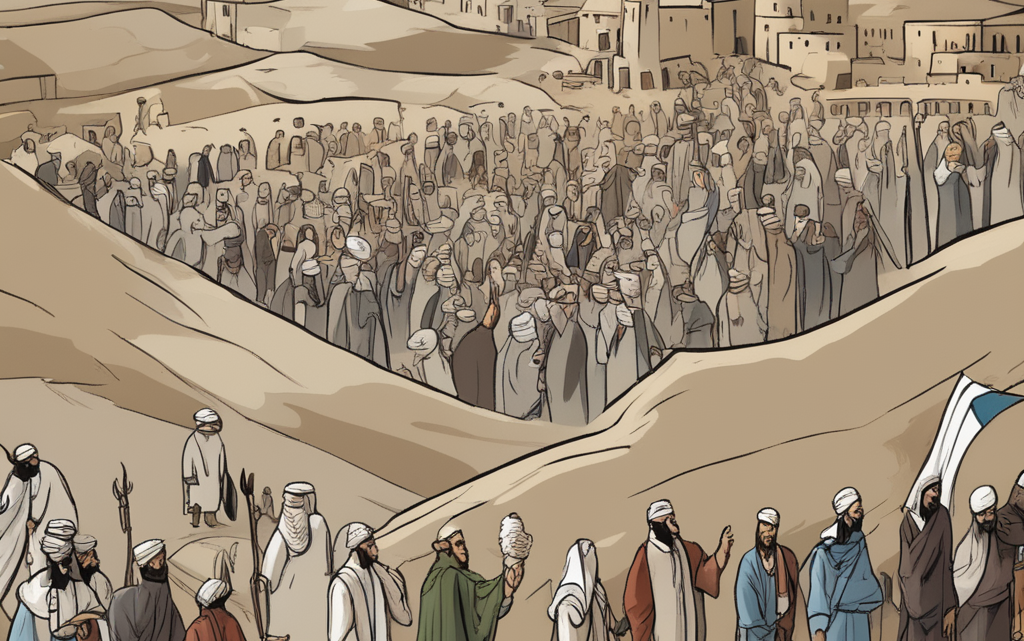The Spiritual and Geopolitical Implications of Israel Taking Control of Gaza: A Scriptural Perspective


The recent escalation between Israel and Hamas has ignited a complex dialogue that has both spiritual and geopolitical implications. Many wonder what role Israel should play in this new chapter of the Middle East conflict, particularly in light of its identity as Yehovah’s covenant people. In this post, we will explore the issue from a scriptural standpoint, examining various Biblical principles that might offer guidance in these trying times.
Israel as a Covenant People
The notion that Israel has a unique covenant with Yehovah is rooted in numerous scriptures. One of the earliest covenants was made with Abraham, where Yehovah promised to make him a great nation (Genesis 12:2-3). This covenant was later reaffirmed to Isaac and Jacob, culminating in the Mosaic Covenant at Sinai, where the Israelites formally became Yehovah’s chosen people (Exodus 19:5-6).
A Land for the Chosen
The land of Israel is central to this covenantal relationship. Yehovah promises the land to the descendants of Abraham, Isaac, and Jacob in multiple instances. In Genesis 15:18, Yehovah declares to Abraham: “To your descendants, I have given this land, from the river of Egypt to the great river, the Euphrates.” This geographical detail underscores the significance of the land in the divine plan.
The Principle of Justice
The Bible strongly emphasizes the concept of justice. “Justice, and only justice, you shall follow, that you may live and inherit the land that the Lord your God is giving you” (Deuteronomy 16:20). This principle has been interpreted in various ways, but in the context of military conflict like the one with Hamas, some argue that Israel has a divine mandate to protect its people and bring justice to those who seek its destruction.
Eye for an Eye?
However, the Torah also prescribes limits to retribution. The famous “eye for an eye” verse (Exodus 21:24) was originally intended to moderate revenge—retaliation should be proportionate and should not exceed the original offense.
Taking Control of Gaza: What Do Scriptures Say?
Gaza is mentioned several times in the Bible, most notably as part of the land promised to the Israelites (Genesis 15:18-21). Does this mean that modern Israel has a Biblical mandate to take control of Gaza?
Possession and Stewardship
If one considers the covenantal promises of land possession, there might be an argument for Israel reclaiming Gaza. However, the covenant also comes with responsibilities. Israel was mandated to be a light unto the nations (Isaiah 42:6) and to practice justice and righteousness (Amos 5:24). Thus, any territorial expansion would also necessitate a commitment to these principles.
The Human Toll and Ethical Implications
The human cost of conflict cannot be ignored. “You shall not murder” is one of the Ten Commandments (Exodus 20:13), and many scriptures stress the importance of preserving human life (Psalm 82:3-4, Proverbs 31:8-9). Therefore, if Israel were to take control of Gaza, it would be imperative to do so in a manner that minimizes the loss of innocent life.
A Time for Peace, A Time for War
Ecclesiastes 3:8 tells us that there is “a time for war, and a time for peace.” The decision to engage in military action, and potentially take control of Gaza, should be carefully weighed against this backdrop. Israel’s actions would need to strive for a balance, aiming for a lasting peace but prepared for the realities of war.
Conclusion
The Israel-Hamas conflict is not merely a geopolitical struggle; for many, it also has deep spiritual ramifications. According to the Bible, Israel holds a unique covenant relationship with Yehovah, making the implications of its actions far-reaching. While scriptures like Genesis 15:18 may seem to offer a territorial mandate, this must be balanced with Biblical principles of justice, proportionality, and the sanctity of human life. As Israel contemplates taking control of Gaza, these scriptural principles may offer a moral and ethical framework for action.
The situation demands not only strategic and diplomatic skill but also profound spiritual discernment. As it stands on the brink of monumental decisions, may Israel find guidance and wisdom in the eternal words of scripture.

